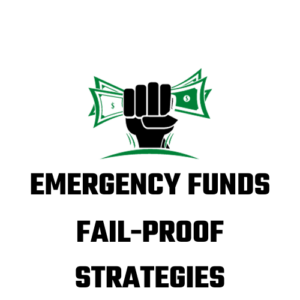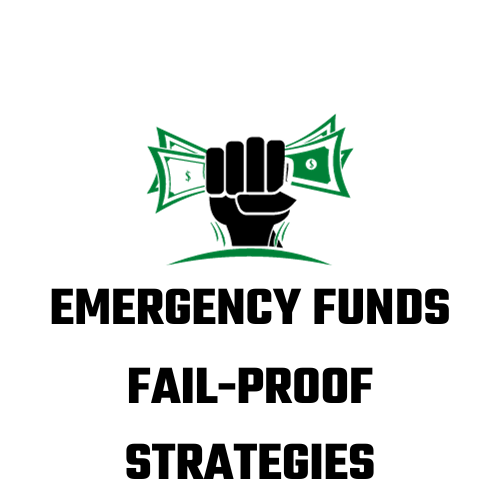In the Indian context, where extended families and social structures often play a crucial role in one’s life, the importance of an emergency fund goes beyond personal financial security. An emergency fund acts as a safety net not only for individuals but for the collective well-being of the family unit. Whether it’s sudden medical expenses, unforeseen educational costs, or unexpected job changes, having a financial cushion can help families navigate uncertainties without compromising their long-term goals.

As we step into 2024, exploring strategies becomes essential for building and optimizing your emergency fund. This article delves into the significance of an emergency fund, the evolving financial scenario in India, and practical strategies to fortify your financial safety net.
Evolving Financial Landscape in India: 2024 Outlook
India’s financial landscape is undergoing significant changes influenced by technological advancements, policy shifts, and global economic trends. As we approach 2024, several factors shape the Indian financial scenario, emphasizing the need for a proactive approach to emergency fund management:
- Digital Transformation: The digital revolution in India continues to redefine how financial transactions are conducted. While this brings convenience, it also highlights the importance of cybersecurity. An emergency fund can serve as a buffer against financial losses in case of online fraud or identity theft.
- Healthcare Challenges: India, like the rest of the world, faces ongoing health challenges. The need for a well-funded emergency fund is underscored by the unpredictable nature of healthcare expenses. Rising medical costs make it crucial to have financial resources readily available to handle unexpected health emergencies.
- Job Market Dynamics: The Indian job market is evolving, with increased emphasis on entrepreneurship, gig work, and remote employment. This flexibility offers opportunities but also introduces job insecurity. An emergency fund becomes pivotal in providing financial stability during transitional phases in employment.
- Inflationary Pressures: Inflation is a perennial concern in India. The rising cost of living necessitates an emergency fund that not only covers immediate needs but also adjusts for inflation over time. Regular reassessment of the fund’s adequacy becomes crucial in this context.
Strategies for Building Your Financial Safety Net in India
Tailoring your emergency fund strategies to the Indian context involves considering cultural values, economic factors, and the unique financial landscape. Here are practical strategies for building and optimizing your financial safety net in 2024:
1. Family-Centric Approach:
Recognize the importance of family in the Indian context. An emergency fund should not only cater to individual needs but also consider the well-being of the extended family. Discuss and involve family members in financial planning to ensure collective preparedness for unforeseen circumstances.
2. Gold as a Financial Buffer:
Gold has deep cultural and financial significance in India. Consider diversifying your emergency fund by allocating a portion to gold assets. This can act as a hedge against economic uncertainties and provide liquidity when needed.
3. Traditional Instruments:
Explore traditional financial instruments that align with Indian values. Fixed deposits, recurring deposits, and government savings schemes can offer stability and moderate returns, making them suitable components of your emergency fund portfolio.
4. Health Insurance Emphasis:
Given the rising healthcare costs, prioritizing health insurance is paramount. A comprehensive health insurance policy ensures that medical emergencies don’t deplete your emergency fund entirely, providing an additional layer of financial protection.
5. Cultural Savings Practices:
Leverage cultural savings practices prevalent in India, such as “kitty parties” or community-based savings. These practices not only encourage regular savings but also foster a sense of community support during financial challenges.
6. Government Schemes Awareness:
Stay informed about government schemes and initiatives that can complement your emergency fund. Some schemes may provide financial assistance during specific emergencies, serving as an additional layer of support.
7. Educate and Involve Family Members:
Financial literacy is empowering. Educate family members, especially younger generations, about the importance of emergency funds and financial planning. Involving family in discussions fosters a collective approach to financial security.
8. Cultural Considerations in Investments:
When considering investments, be mindful of cultural and ethical considerations. Socially responsible investing aligns with Indian values and can be integrated into your overall financial strategy.
9. Regional Economic Variations:
India’s economic landscape varies regionally. Consider the economic dynamics of your specific region when determining the size and composition of your emergency fund. Factors such as cost of living and employment opportunities can differ significantly.
10. Navigate Gold Loans Wisely:
While gold is a valuable asset, be cautious when leveraging it for loans. Gold loans can provide liquidity, but it’s essential to understand the terms and implications to avoid potential financial strain.
Conclusion
In the rich tapestry of India’s financial landscape, building and maintaining an emergency fund is not just about individual security; it’s a collective endeavor rooted in family values and cultural dynamics. As we navigate the uncertainties of 2024, tailor your emergency fund strategies to the Indian context. Embrace the cultural significance of family, leverage traditional instruments, and stay informed about regional economic variations. Let your emergency fund be a source of collective strength, ensuring that you and your loved ones are well-prepared to face whatever challenges the future may hold.
Read more:
Need Emergency Funds Quickly? – Tricky Finance
How To Save for an Emergency – Tricky Finance
This is How a Personal Loan Acts as a Trump Card in Emergency Situations! – Tricky Finance
Princy Agarwal, a postgraduate in English from Delhi University, writes content for Tricky Finance, where they simplify complex financial topics for readers. With a knack for clear communication, Princy’s work helps make finance understandable and accessible to all.




